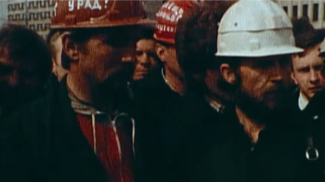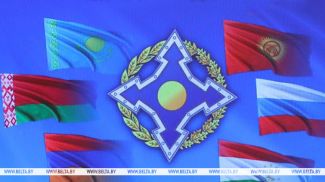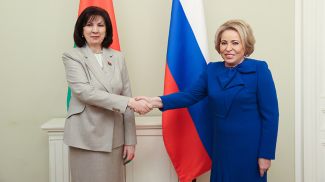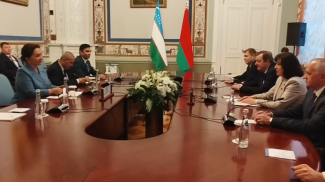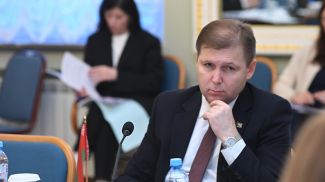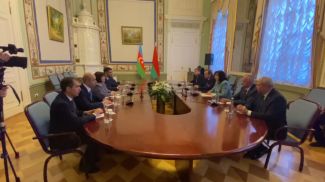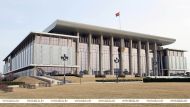MINSK, 25 August (BelTA) – A roundtable session was held in the CIS Executive Committee in Minsk to discuss efforts of Belarusian government agencies to prevent the glorification of Nazism, the press service of the CIS Executive Committee told BelTA.
A representative of the Central Office for Fight Against Organized Crime and Corruption of the Belarusian Internal Affairs Ministry Vyacheslav Orlovsky, First Deputy Chairman of the CIS Executive Committee Leonid Anfimov, Deputy Chairman of the CIS Executive Committee Beketzhan Zhumakhanov, a representative of the Border Guard Commanders Council under the CIS Executive Committee Aleksandr Boyechko, and personnel of the CIS Executive Committee took part in the discussion.
The roundtable session was organized upon the initiative of the Department for Cooperation in Security and Counteraction of New Challenges and Threats of the CIS Executive Committee. As he opened the meeting, the department's director Aleksandr Burov mentioned the topically of the problem. “The year of the 80th anniversary since the start of the Great Patriotic War encourages all of us to think about what history we are writing now,” he noted. “Close attention is paid in the Commonwealth of Independent States to measures meant to preserve memory of that war. In their address to the nations of the CIS states and the world community on the occasion of the 80th anniversary since the start of the Great Patriotic War the heads of state noted that it is important to carefully preserve memory and know the truth about the war, to fight together against the falsification of history and the glorification of the Nazi movement.”
Vyacheslav Orlovsky was the main speaker. He is one of the authors of the bill on preventing the rehabilitation of Nazism. In his speech he outlined the main trends in criminal activities that aid and abet the rehabilitation of Nazism. The expert drew attention to the identification of nationalistic and collaborationist organizations, which should be banned, and symbols of such organizations, which public demonstration entails administrative prosecution.
Participants of the meeting agreed it is necessary to channel efforts into instilling patriotism in post-war generations of the CIS states, into pursuing a permanent coordinated information campaign, and into objectively covering events of the Great Patriotic War.
The CIS Executive Committee has finished reconciling a draft document on setting up an international association (commission) of historians and archivists of the CIS states as a new format of cooperation. The matter has been included into the agenda of the next session of CIS Foreign Ministers Council, which will take place in Minsk on 14 October.
The association is supposed to help spread objective information about events of World War Two and the Great Patriotic War of 1941-1945. It will also contribute to the preservation of the corresponding historical legacy.




